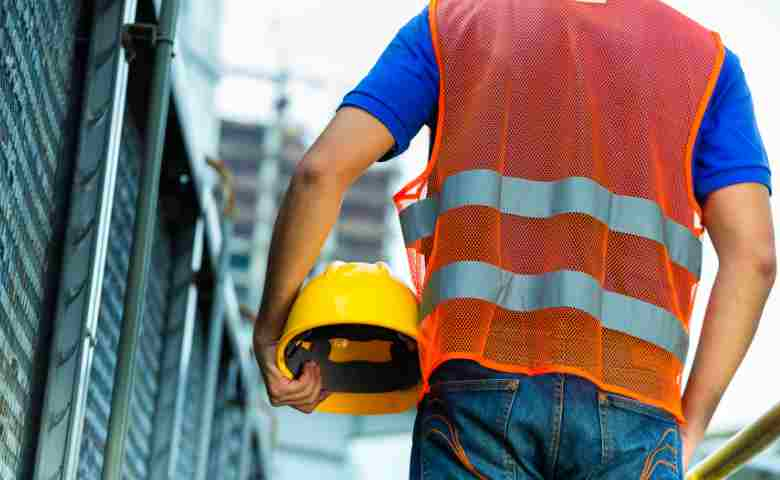Last Updated on June 14, 2024 by Admin
Embarking on a career in construction is akin to building from the ground up—laying a foundation of skills, erecting pillars of experience, and eventually standing back to admire the skyline you’ve helped transform. It’s a field that promises tangible results from hard work, where every project adds a physical testament to one’s career. Yet, like any substantial structure, a career in construction comes with its set of challenges and hazards, balanced by the satisfaction and achievements it can yield. This duality forms the core of what makes working in construction a unique and compelling path.
Table of Contents
Building Futures
A career in construction is synonymous with opportunity. From the onset, workers are part of an industry critical to economic growth and societal development. The sense of accomplishment in seeing a project through from blueprint to completion is unparalleled. Each structure stands as a testament to the skill and dedication of its builders. Beyond personal fulfillment, the sector offers a wide array of roles, from hands-on construction work to project management, providing a ladder of career progression that is both accessible and rewarding.
Financial incentives further sweeten the deal. The construction industry often offers competitive wages that reflect the skill and risk involved in the work. For those willing to put in the effort, the financial rewards can be significant, making it an attractive option for individuals seeking a lucrative career without the prerequisite of a four-year degree.
Inherent Hazards
Construction sites are inherently dangerous places, with risks ranging from minor injuries to life-threatening accidents. The machinery used is powerful and requires respect and understanding to operate safely. Falling objects, working from heights, and the ever-present danger of accidents present a constant challenge to safety on site.
Rigorous safety standards and regulations aim to protect workers, with training and protective equipment being paramount. Employers and site managers prioritize safety, understanding that a safe workplace is essential for the well-being of their employees and the smooth operation of their projects. Despite these measures, the risk of injury remains, highlighting the need for vigilance and continuous education on safety practices.
Injury and Recovery
Despite the existence of safety regulations mandated by the government and risk-reducing policies enforced by the company, construction work will always be dangerous. No amount of rules and measures can completely eliminate the dangers of the job, given the inherent risks presented by heavy machinery, hazardous materials, and perilous heights.
If you are seriously injured on the job, your employer’s insurer may attempt to keep compensation to a minimum. It’s their job to do so. With this in mind, it’s your job to seek legal counsel. The leading construction accident lawyers in New York and other cities with constantly changing skylines have the insight and experience to ensure you get the financial compensation you deserve rather than the lowest amount the insurance company wants to pay. This reality underscores the importance of understanding your rights and the measures in place to protect you. While the industry strives to safeguard its workers, being prepared and informed is crucial for anyone navigating the complexities of construction work.
Embracing Innovation and Technology
The construction industry is not static; it evolves constantly, integrating new technologies and methodologies that redefine traditional practices. Drones, 3D printing, and Building Information Modeling (BIM) are just a few innovations enhancing accuracy, efficiency, and safety on construction sites.
For those with careers in construction, this means a continuous learning curve and the chance to develop new skills. Embracing these changes can lead to exciting opportunities for career advancement and personal growth. It positions workers at the forefront of industry innovation, making them invaluable assets to their teams and companies.
Environmental Impact and Sustainability
Today, construction is not just about erecting buildings; it’s about doing so responsibly, with an eye on sustainability and environmental impact. This shift towards green building practices offers workers the chance to contribute positively to the planet while engaging in their daily tasks.
Construction professionals can take pride in working on projects that prioritize energy efficiency, use sustainable materials, and aim to reduce carbon footprints. This aspect of construction work adds a layer of reward, knowing that one’s efforts contribute not only to economic development but also to environmental stewardship.
The Community Connection
Construction work extends beyond the physical structures—it plays a pivotal role in shaping communities. Infrastructure projects, housing developments, and public spaces all contribute to the quality of life for residents.
Workers in the construction industry have the unique satisfaction of knowing their hard work directly benefits society, creating spaces where people live, work, and play. This connection fosters a sense of purpose and belonging, as each project helps to build stronger, more vibrant communities.
Health and Wellbeing
While the physical demands of construction work can pose risks, they also offer substantial health benefits. The active nature of the job promotes fitness and can lead to a healthier lifestyle.
Furthermore, the camaraderie on construction sites and the shared sense of accomplishment in completing projects can boost mental health and well-being. It’s a career that challenges both the body and the mind, offering a holistic approach to personal health.
Balancing the Scales
A career in construction is a journey of contrasts—where risks are met with rewards, challenges with opportunities, and hard work with satisfaction. This balance is what makes the profession uniquely rewarding. The tangible results of one’s labor, the advancement of technology and sustainability, the impact on communities, and the personal growth and health benefits collectively paint a picture of a career that is as fulfilling as it is demanding.
Those considering a path in construction or those already navigating its landscapes can find solace in the knowledge that, while the risks are real, the rewards are equally significant. It’s a career that builds more than just structures; it builds character, communities, and a sustainable future. In weighing the risks against the rewards, it becomes clear that a career in construction offers a solid foundation for a fulfilling professional life marked by continuous growth, innovation, and the satisfaction of making a tangible difference in the world.
Related Posts:
- A Guide to Different Types of Construction Projects
- Women Working in Construction: A Perfect Match
- Civil Engineering and Planning: Paving the Path for Modern Infrastructure
- 6 Tips to Landing Your Next Construction Job
- A Comprehensive Insight into How a Construction Company Works


